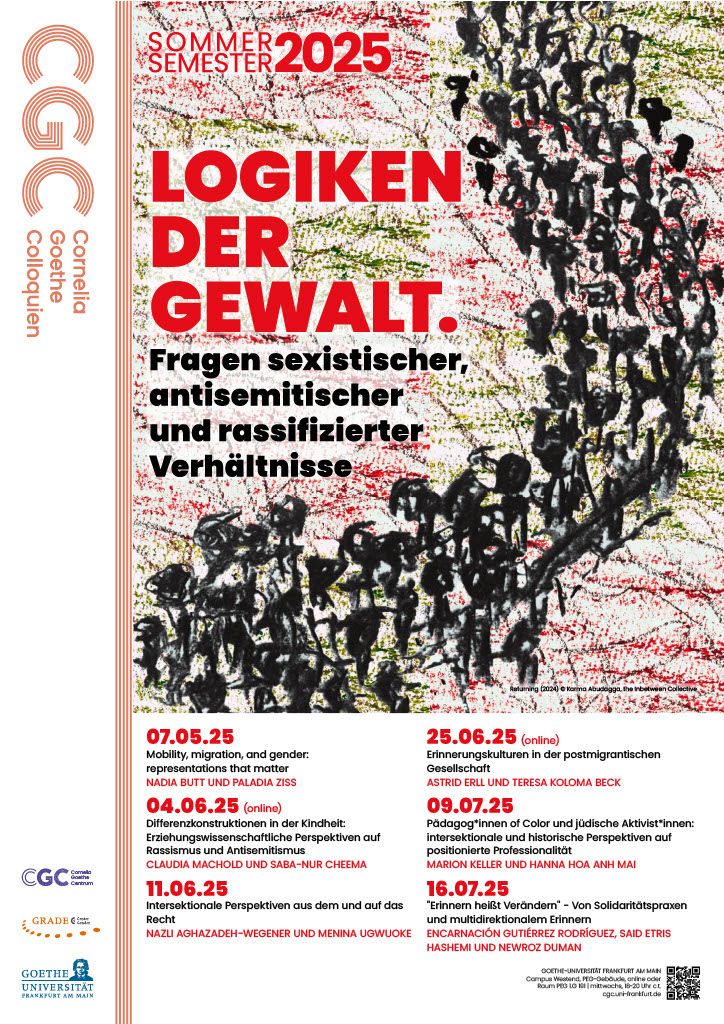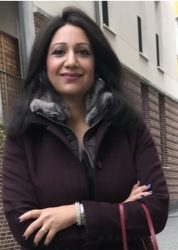
Raum 1.G191
Nadia Butt
Mobility, Migration, Modernity: The Global Novel and Its Theory
This lecture provides the theoretical frames of the global novel in the twenty-first century. Drawing upon existing research on the global novel in relation to world literature, postcolonial literature, diasporic literature, transcultural or transnational literature, the aim is to define the global novel from the perspective of global change, modernity, mass migration and mobility, the realities of which have fundamentally shaped the form and content of the novel today. My contention is that the global novel can be theorised in three major ways: First, how it reveals the outcome of travel, mobility, and migration; second, how the experience of displacement and exile are often essential to the global novel third, how the global novel unfolds the challenges of the diasporic condition. To this end, I will allude to a significant number of novels from the Global South, which can be read from the theoretical framework presented in the lecture.
Paladia Ziss
Exclusions from Space, through Time: Temporalities of Patriarchal Racism in the Germany-Turkey Border Regime
Violence against migrants, including calls for mass deportation, draws on logics that normalise belonging in space: people are designated as deportable “others” because they allegedly belong “elsewhere”. Yet, exclusion from space also operates in and through time. Drawing on research with networks of refugees from Syria and Turkey, this talk explores the temporal logics of the postcolonial border regime across Germany and Turkey. It builds on feminist scholarship on the temporal hierarchisations of patriarchal power to argue that migration governance and its implementation re/produces discourses and practices that privilege the pasts, presents and futures of certain racialised and classed bodies, usually imagined as white, middle-class and male nationals. These sexist and racist governance technologies in turn legitimise everyday exclusions and exploitations of migrantised people through their construction as “temporal others” who did not and will not belong, irrespective of actual legal status or citizenship.

Paladia Ziss is a Senior Research Associate in Sociology at the University of Bristol, UK. She is broadly interested in the sociologies and politics of displacement, belonging, citizenship and time. Her current postdoctoral project explores the interaction of state governance and refugees’ everyday and social lives within the postcolonial contexts of Germany and Turkey. Her work has appeared in the Journal of Ethnic and Migration Studies, Migration and Society and Frontiers in Human Dynamics, and various edited volumes and reports. With a practical background in the development and humanitarian sector, she is strongly committed to engaged, relevant and justice-oriented research.

Nadia Butt is Professor of Global Anglophone Literatures and Cultures at the University of Frankfurt. She has taught postcolonial literatures at the University of Giessen, the University of Colombo, and the University of Milwaukee-Wisconsin. In 2019, she was awarded the Dr. Herbert-Stolzenberg Prize by the University of Giessen, where she worked as a senior lecturer (2009-2023), for her outstanding achievements in teaching. Her main areas of research are transcultural theory and literature, mobility and migration studies, memory studies, Global Anglophone literatures, postcolonial theory and literature, and travel theory and literatures. Her research has appeared in international peer-reviewed journals such as Prose Studies, Journal of Aesthetics and Culture, Postcolonial Interventions, Journal of Postcolonial Writing, and Studies in Travel Writing.
She is the author of Transcultural Memory and Globalised Modernity in Contemporary Indo-English Novels (2015) and The Travelling Imagination in Cross-Cultural Literatures (forthcoming). Recently, she has published a handbook on The Anglophone Novel in the 21st Century: Cultural Contexts – Literary Developments (2023) together with Ansgar Nünning and Alexander Scherr.

